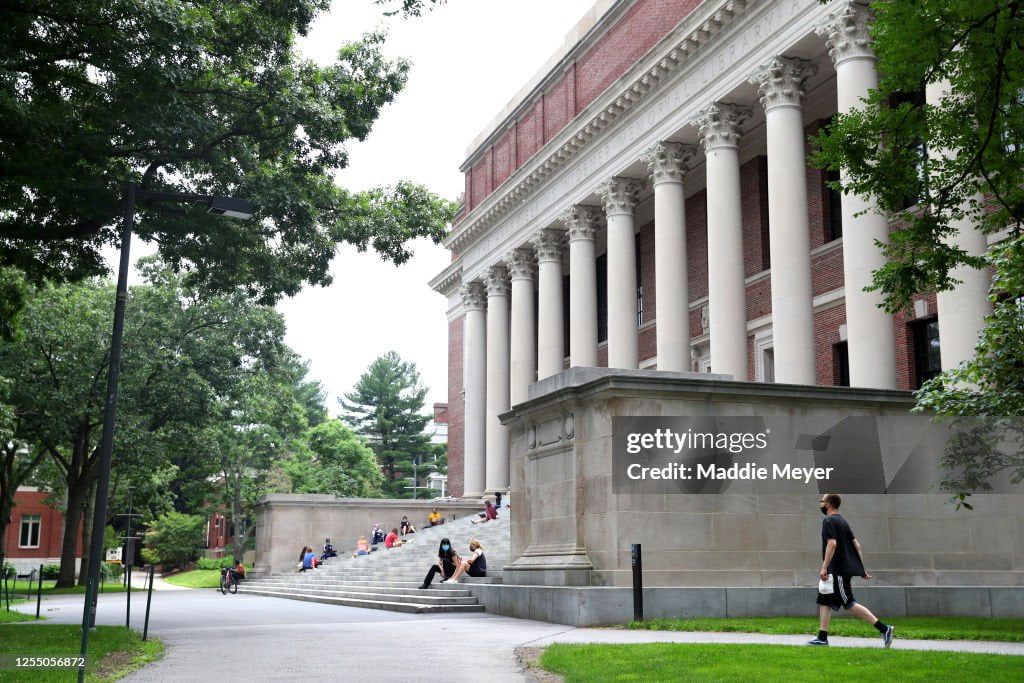SEAS is happy to be welcoming new faculty members to Computer Science, Applied Math
Faculty members have experience in machine learning AI as well as data
News
Faculty members have experience in machines learning AI as well as data
HTML0 Harvard John A. Paulson School of Engineering and Applied Sciences (SEAS) has welcomed 4 new scientists from the areas of machine-learning artificial intelligence and data management, and more to the Faculty. Four of the faculty members who are new are also researchers for the Kempner Institute for the Study of Natural and Artificial Intelligence located at Harvard University , which is part of the Science and Engineering Complex.
“We’re at a transformational moment for artificial intelligence and I couldn’t be more excited to recruit outstanding new faculty to SEAS,” said David C. Parkes, the John A. Paulson Dean. “Our new faculty members have a wealth knowledge and talent at the forefront of AI and machine learning. AI and driving fundamental research that will ensure that we keep learning about and accept AI and make it work to benefit everyone. “
The new faculty includes:
Juncheng Yang
Juncheng Yang will join SEAS in 2025. He will be the Assistant Professor of Computing Science. Yang’s research is focused on the long-term durability, reliability and longevity of data storage systems. He makes use of detailed tests to create innovative algorithms and systems that increase the performance of future computer and storage system. Yang is especially interested in developing long-lasting, durable and reliable methods for managing cache and storage and implementing new methods to allow the use of machine learning in order to make it more efficient for storage systems.
Yang has joined SEAS after he left Carnegie Mellon University, where the doctor received his Ph.D. with a degree in HTML1. Ph.D.
Kiante Brantley
Kiante Brantley has been employed by SEAS on the 1st of July 2024. She was appointed Assistant Professor of Computer Science and as an Investigator at the Kempner Institute. Brantley’s research focuses on issues with misalignment that machine-learning systems based on foundation models typically encounter. He is trying to tackle the issue through the study of algorithms that learn from feedback data that comes from other source. His research subjects include imitation and reinforcement learning, as well as the naturally processed processing of languages.
Brantley is a member of SEAS together with SEAS and The Kempner Institute from University of Maryland where he earned the Ph.D.
Yilun Du
Yilun Du Joins SEAS in the month of July 2025 as an Assistant Professor in Computer Science and Kempner Investigator. Du’s work concentrates on the use of the process of creating generative AI to create intelligent robots that are able to take on situations that were never imagined and complete the tasks. His work is focused around generative compositional models, which is where existing models may be combined to tackle new challenges and allow systems to explore areas that aren’t covered by the distribution of information. His research has revealed that these systems could be utilized to design configurations for robotics, visual and languages and also general scientific applications such as designing proteins or synthesizing materials.
Du joins SEAS along with SEAS and The Kempner Institute from MIT, where he earned the Ph.D.
Michael Albergo
Michael Albergo will join SEAS in July 2026. He will become the Assistant Professor in Applied Mathematical Sciences, as well as an Kempner investigator. Albergo is keen on methods of numerical analysis as well as machine learning that can help speed up the process of discovery for physical scientists and also for investigating intricate systems. Albergo also hopes to use the insights of statistical physics in order to improve our understanding of the processes of the rapidly growing field of modeling generative, and to create statistically robust techniques for machine learning which can be adapted to the particular issues they tackle.
In the days prior to being appointed at SEAS together with SEAS along with Kempner Institute, and SEAS Kempner Institute, Albergo will be a junior fellow within the Society of Fellows here at Harvard. He received his Ph.D. in Physics from New York University in Physics.
Topics: Applied Mathematics , Computer Science










